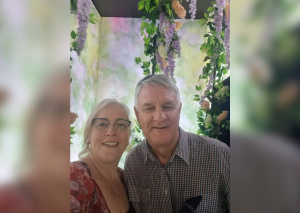By Annelise de Vries and Jhua-Nine Wyrley-Birch
Afrikaans may be on the wane or disrespected in South Africa – the country in which this language was created and developed with sweat and blood – but internationally it is gaining ground and winning hearts.
The position of the language is characterised by many contradictions on the home front.
Dr Nicol Stassen, CEO of Protea Book House, writes that Afrikaans books are currently winning the market share when the publishing industry is considered. According to him, 49% of all locally-published titles were Afrikaans in 2015, while major international publishers the likes of Penguin Random House and Oxford have also entered the Afrikaans market.
Afrikaans does not only flourish in this industry, but also in various other domains such as television, radio, the arts, art festivals and the film industry.
On the other hand, Afrikaans is being reduced on official level, as well as being degraded and declared invalid in the Courts and in educational institutions in a structured manner.
The number of students who signed up for Afrikaans subjects at universities have decreased country-wide in the last decade. To give but two examples: At the University Stellenbosch 1 303 students studied Afrikaans-related subjects on undergrad level, whereas only 345 registered for the same subjects in 2016. These subjects include Afrikaans for foreign language speakers, Afrikaans as second language, Afrikaans language and literature studies, and advanced studies in Afrikaans. At the University of Johannesburg even fewer students are interested in Afrikaans: 506 students registered for Afrikaans subjects in 2007, whereas the number decreased to 58 in 2016.
This indicates an average decrease of 82% over the past decade in the number of students who registered for Afrikaans subjects at these universities.
Prof. Lawrence Schlemmer, world-renowned sociologist, warned many years ago that the greatest danger to Afrikaans is that it would be weakened or even disappeared as university language. He also said that that this would mean the demise of Afrikaans as scientific, technical and literary language, as well as language of intellectual discourse.
The survival of Afrikaans can therefore not depend on its position in the arts, publishing industry or as spoken language – as some academics and language experts believe. Its survival and protection also depend on its position as higher function language, especially in education and the legal system.
Much has been written, said or debated ad nauseam on this unfavourable local state and status of Afrikaans. There is, however, also a positive side to the Afrikaans case of which very few people know: Afrikaans is alive and well in many other countries, whereas the international study and use thereof are becoming more and more popular.

The map above shows that Afrikaans is offered as subject at nine European universities , among these Russia, Belgium, Poland, the Netherlands, the Czech Republic, Austria, Germany and the United Kingdom. Five American universities as well as South Africa’s neighbour, Namibia, also offer Afrikaans as subject.
It is no coincidence that Afrikaans is offered as subject in European, Northern American and African universities, as Afrikaans has its roots in Africa, Europe and Asia.

The question begs: Why does Afrikaans enjoy attention as subject in other parts of the world?
This can be attributed to the fact that it is one of the youngest Germanic languages in the world and that knowledge of Afrikaans gives a person cultural insight into Africa. Comparative studies on the terrains of language, literature and culture are also made possible.
Afrikaans reached high-function status within record time. Four universities introduced it as language of instruction within 25 years after having been recognised as official language 92 years ago. It is for this reason that the language is often used as case study in language planning research.
“Afrikaans is a beautiful and emotional language. It is very unfair that it is being supressed so much in South Africa,” says Valentina Kim (22), a Russian student who studies Afrikaans as second additional language at the Institute of Asiatic and African Languages at the Lomonosov State University in Moscow.
She is one of six Russian students who visited AfriForum in February this year as part of a cultural tour that had been arranged by the Federasie van Afrikaanse Kultuurvereniginge (FAK) to teach these students more about Afrikaans and Afrikaans-speaking people.
“For me Afrikaans has the most beautiful sound patterns and pronunciation,” says Alisa Balikhina (22), one of these students and who studied Afrikaans for six months in 2015 at the North-West University in Potchefstroom as part of an exchange programme.
During her visit to Forum Nuus she said that Russian institutions did not experience the same pressure to anglicise. She is of the opinion that there is ample opportunity for Afrikaans to grow internationally.
Numerous international academics are also pro-Afrikaans and have founded centres for the study of Afrikaans in an effort to protect and grow the language.
One of them is Prof. Jacques van Keymeuelen, a founding member of the Centrum voor het Afrikaans en de studie van Zuid-Afrika, at the Gent University in Belgium. He describes this foundation as the addition of value to the greater visibility of education, research and service in terms of Afrikaans and South Africa.
He believes that this initiative will be popular internationally – within and outside of South Africa. To Van Keymeuelen the eventual aim of the Gent University is to build internationally-recognised expertise about the Afrikaans language and literature, as well as the study of South Africa.
According to Prof. Jacques du Plessis, former lecturer of Afrikaans at the University of Wisconsin and the University of California’s Los Angeles campus (UCLA), American studies always loved Afrikaans poetry and short stories.
Just like Van Keymeuelen, Du Plessis campaigns for the research and development of language technology and language technology products for South African languages. One such an example is the website Open Languages that aims to provide the international community with the best possible Afrikaans education absolutely free.
Robert O’Brien – a prominent advocate from Los Angeles, California who have held various top position during the Bush administration and have been the legal representative fir well-known people the likes of Buzz Aldrin – agrees and says that Afrikaans is a rich, unique language. “South Africa will be an intellectually poorer country if its academic world would not provide a place for Afrikaans,” he says.
O’Brien was also the top student at the UCLA and was then chosen by an international bursary fund to study in South Africa as exchange student in the eighties.
This is where he was introduced to Afrikaans, while keeping his passion for the language through the years. In an exclusive interview with Forum Nuus O’Brien tells (in Afrikaans, which he can speak to this day) that his wife still monthly imports copies of De Kat and Die Huisgenoot to Los Angeles for his reading pleasure.
The utilisation of indigenous languages on an official level may be a loaded political question, according to O’Brien, and is not unique to South Africa. He is still of the opinion: The more languages a person can speak, the better you can stand your ground in the business, political and diplomatic world.
Even if Afrikaans faces many challenges on the home front, there is ample reason that the international sphere do acknowledge the contributions of Afrikaans to the knowledge of world languages as important.
Keep an eye out on Forum Nuus for the complete interview with O’Brien, as well as an article on AfriForum’s paper on language activism that was recently presented at the University of Amsterdam in the Netherlands.
- Annelise de Vries is the Language Planner at AfriForum and currently studies for a PhD in Applied Linguistics at the University of Johannesburg.
- Jhua-Nine Wyrley-Birch is a journalist for AfriForum’s digital newsletter Forum Nuus, as well as the member magazine Forum Tydskrif. She conducts interviews and films short news videos for Forum Nuus.
Share on
Latest articles




















